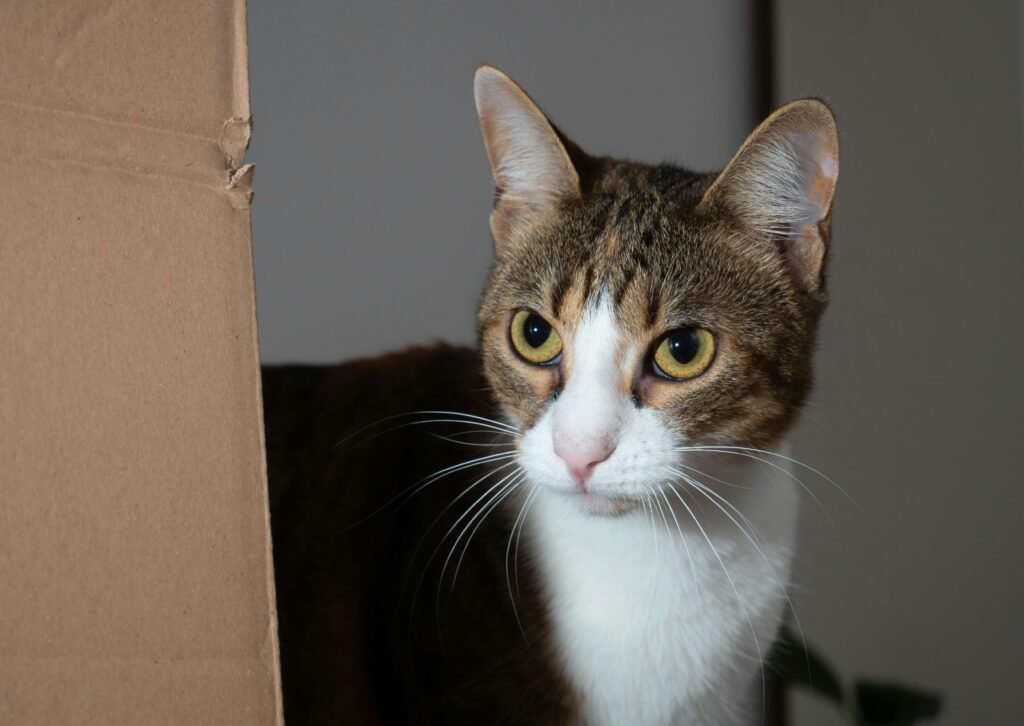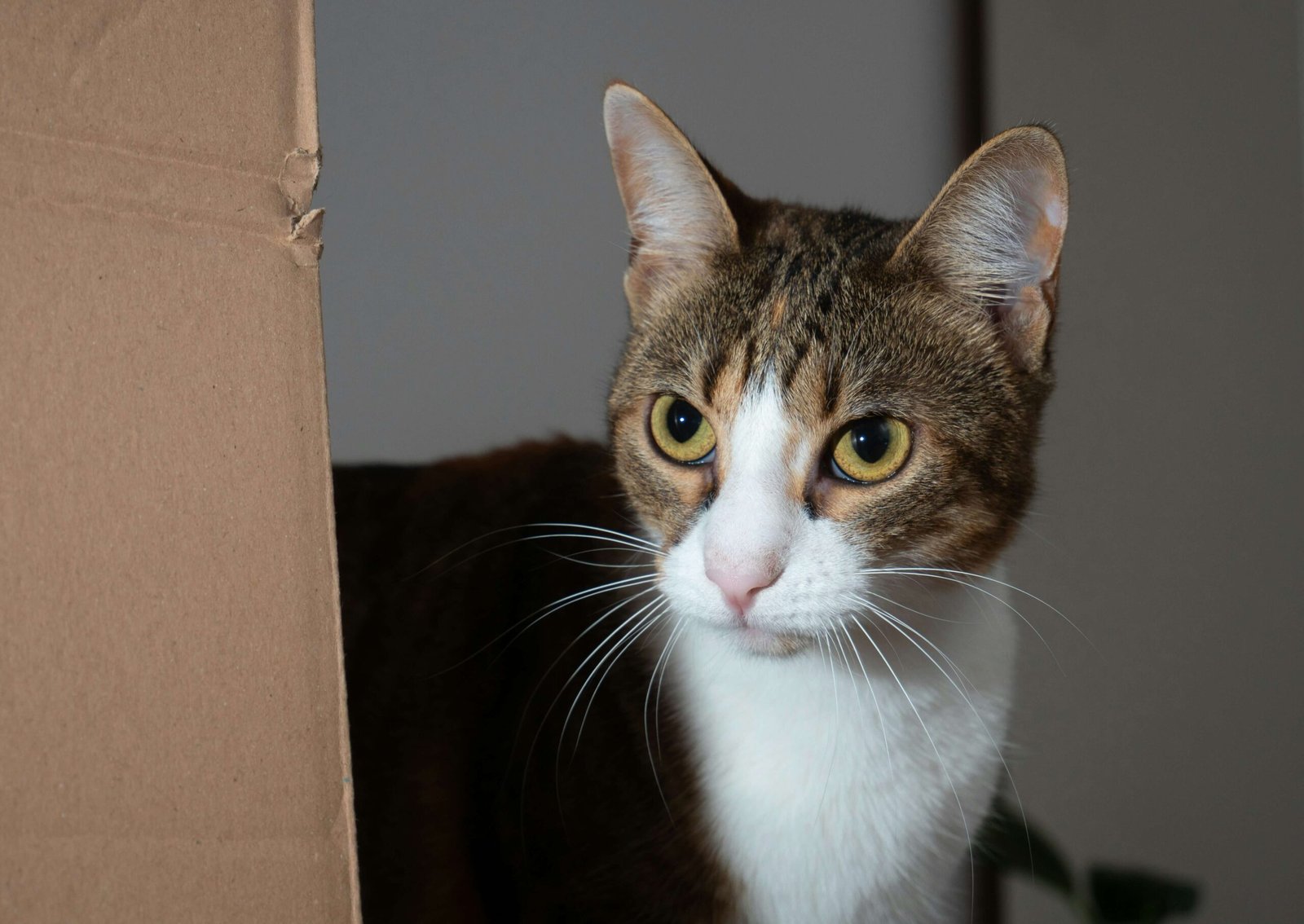Why Does My Cat Like Earwax? Unraveling the Mystery
Cats are curious creatures, and their quirky behaviors often leave us scratching our heads. One such puzzling habit is their fascination with earwax. If you’ve ever caught your feline friend sniffing around your ears or even trying to lick them, you’re not alone. Many cat owners have reported this behavior, and while it may seem strange, there’s actually a scientific explanation behind it. In this blog post, we’ll dive into why cats are drawn to earwax, explore their unique senses, and uncover what this behavior might mean for your bond with your furry companion.
The Science Behind Your Cat’s Curiosity
Before we delve into specific reasons why your cat might be interested in earwax, let’s break down the science behind this behavior. Cats rely heavily on their sense of smell and taste to explore the world around them. Their heightened sensory abilities allow them to detect scents and flavors that humans can’t perceive. Here are some key factors that contribute to their fascination:
Jacobson’s Organ : Cats possess a specialized organ called the vomeronasal organ (or Jacobson’s organ), which helps them analyze scents more deeply than humans can.
Strong Sense of Smell : A cat’s sense of smell is approximately 14 times stronger than that of humans, making them highly sensitive to odors like earwax.
Taste and Smell Connection : Cats often associate certain smells with food or comfort, and earwax might trigger this connection due to its unique composition.
Natural Instincts : In the wild, cats investigate everything around them to assess potential threats or resources. This instinctual curiosity extends to domesticated cats as well.
Social Bonding : Licking or sniffing ears could be a way for cats to strengthen their bond with their human companions.
Understanding these biological and behavioral aspects can help you see your cat’s actions in a new light. While it may seem odd, this behavior is rooted in their natural instincts and sensory capabilities.
Possible Reasons Your Cat Is Attracted to Earwax
Now that we’ve explored the science, let’s examine some practical reasons why your cat might be drawn to earwax. Cats are complex animals, and their motivations can vary based on individual preferences and circumstances. Below are common explanations for this peculiar behavior:
Nutritional Interest : Earwax contains traces of proteins, fats, and salts, which might appeal to your cat’s palate.
Comfort and Familiarity : Cats are creatures of habit and find comfort in familiar scents. Your scent, including earwax, might provide a sense of security.
Exploration of New Textures : Cats love to investigate different textures, and the sticky consistency of earwax might intrigue them.
Attention-Seeking Behavior : If your cat has learned that licking your ears gets your attention, they might repeat the behavior to interact with you.
Medical Concerns : In rare cases, excessive interest in earwax could indicate an underlying health issue, such as a nutritional deficiency or skin condition.
While most instances of this behavior are harmless, it’s important to monitor your cat’s actions and consult a veterinarian if you notice any unusual patterns.
Check this guide 👉Understanding Cat Ear Polyps: Best 7 Expert Tips!
Check this guide 👉Cat Ear Mites vs Wax: Best 7 Expert Tips!

Reasons for Cat’s Interest in Earwax | What You Can Do |
|---|---|
Nutritional curiosity | Ensure your cat’s diet is balanced. |
Scent familiarity | Spend quality time bonding. |
Texture exploration | Provide interactive toys. |
Attention-seeking behavior | Redirect their focus with play. |
Potential medical concerns | Consult a vet for advice. |
How to Handle Your Cat’s Earwax Fascination
If your cat’s interest in earwax is becoming a frequent occurrence, there are several steps you can take to manage the situation. While it’s generally harmless, addressing the behavior early can prevent it from escalating. Consider the following tips:
Redirect Their Attention : Offer toys or treats when you notice your cat showing interest in your ears.
Maintain Good Hygiene : Regularly clean your ears to minimize the scent of earwax, reducing temptation for your cat.
Provide Mental Stimulation : Engage your cat with puzzle feeders or interactive games to satisfy their curiosity.
Set Boundaries : Gently discourage the behavior by saying “no” or moving away when your cat attempts to lick your ears.
Consult a Professional : If the behavior persists or seems obsessive, seek guidance from a veterinarian or animal behaviorist.
By taking proactive measures, you can ensure that both you and your cat remain comfortable and happy.
Fun Facts About Cats’ Quirky Behaviors
Cats are full of surprises, and their love for earwax is just one example of their eccentric habits. To give you a broader perspective on feline quirks, here are some interesting facts about cats and their behavior:
Grooming Obsession : Cats spend up to 50% of their waking hours grooming themselves and others.
Unique Taste Buds : Cats lack certain taste receptors, such as those for sweetness, but they are highly sensitive to bitter flavors.
Territorial Marking : Cats use scent glands on their face, paws, and tail to mark their territory and feel secure.
Nocturnal Nature : Cats are crepuscular, meaning they are most active during dawn and dusk.
Curiosity Knows No Bounds : Cats are naturally inquisitive and will investigate anything that captures their attention, from boxes to small spaces.
These fun facts highlight the complexity and charm of our feline friends. Understanding their quirks can deepen your appreciation for their unique personalities.
The Role of Scent in Feline Behavior
Cats are highly attuned to scents, which play a crucial role in their daily lives. Whether it’s marking territory or bonding with their owners, scent is an essential part of how cats communicate and navigate the world. Below are some ways scent influences their behavior:
Territorial Marking : Cats use scent glands located on their cheeks, paws, and tail to mark objects and establish boundaries.
Comfort Through Familiar Scents : Cats often rub against people or objects to transfer their scent, creating a sense of familiarity and security.
Exploration of New Smells : Cats investigate new environments by sniffing, using their keen sense of smell to gather information.
Bonding Through Scent : Cats may lick or sniff parts of their owner’s body, like ears, to reinforce their bond and feel closer to them.
Scent Over Sight : In many cases, cats rely more on scent than sight to identify objects, people, or other animals.
Understanding the importance of scent in your cat’s life can help you better interpret their actions and strengthen your connection with them.
Signs Your Cat Is Exploring Out of Curiosity
When cats exhibit behaviors like sniffing or licking unusual things, it’s often driven by sheer curiosity. This natural instinct helps them learn about their surroundings, but it’s important to recognize when curiosity turns into something more concerning. Here are signs that your cat is simply exploring:
Sniffing Around Objects : Cats will often sniff items like shoes, bags, or even your ears to gather information.
Licking Unusual Surfaces : Licking odd surfaces, including earwax, could indicate curiosity rather than a health issue.
Pawing at Items : Cats may bat at objects to explore their texture or scent further.
Following You Closely : If your cat follows you around, they might be investigating your scent or seeking attention.
Inspecting Changes in Routine : Cats notice changes in their environment and will investigate anything new or unfamiliar.
While these behaviors are usually harmless, always monitor your cat to ensure their curiosity doesn’t lead to unsafe situations.
How to Encourage Healthy Exploration
Redirecting your cat’s curiosity toward safe and enriching activities can help minimize unwanted behaviors like licking earwax. Providing outlets for their natural instincts ensures they stay entertained and engaged. Here are some ways to encourage healthy exploration:
Interactive Toys : Offer toys that stimulate their senses, such as feather wands or treat-dispensing puzzles.
Scratching Posts : Provide scratching posts or pads to satisfy their need to explore textures and stretch their claws.
Safe Spaces to Explore : Create cozy nooks or hideaways where your cat can retreat and investigate safely.
Rotating Toys : Keep your cat’s interest by regularly rotating their toys to provide variety.
Outdoor Enclosures : If possible, set up a secure outdoor enclosure so your cat can experience new sights, sounds, and smells safely.
By fostering an environment that encourages healthy exploration, you can redirect your cat’s curiosity toward positive and enriching activities.
Frequently Asked Questions
Is it normal for my cat to lick my ears?
Yes, it’s relatively common for cats to show interest in human ears due to their strong sense of smell and curiosity.
Should I be concerned if my cat likes earwax?
Generally, no. However, if the behavior becomes obsessive or is accompanied by other symptoms, consult a vet.
Can earwax harm my cat if they ingest it?
Small amounts are unlikely to cause harm, but consistently ingesting earwax isn’t ideal and should be discouraged.
How can I stop my cat from licking my ears?
Redirect their attention with toys, maintain good hygiene, and gently discourage the behavior.
Are certain breeds more likely to exhibit this behavior?
There’s no evidence linking specific breeds to earwax fascination, but individual personalities play a significant role.
Embracing Your Cat’s Unique Personality
Every cat owner knows that life with a feline companion is never dull. From their playful antics to their mysterious habits, cats keep us entertained and intrigued. While their fascination with earwax might seem unusual at first, it’s simply another example of how cats view the world differently than we do. By understanding the reasons behind this behavior and taking appropriate steps to manage it, you can foster a harmonious relationship with your pet. Remember, every quirk adds to the joy of sharing your life with a cat—so embrace the weird and wonderful moments!
Do Cats Have Taste Buds? Best 7 Expert Tips! – Discover how cats experience flavors and why their taste is so unique.
Do Dogs Have Taste Buds? Best 7 Expert Tips! – Discover how dogs experience taste, their preferences, and what it means for their diet and health.
Can Cats Taste Sweet? Best 7 Expert Tips! – Discover why cats can’t taste sweetness, how it affects their diet, and tips to keep them healthy and happy.
Can Dogs Taste Sweet? Best 7 Expert Tips! – Discover how dogs perceive sweetness, which foods are safe, and tips to manage their sweet cravings responsibly.





